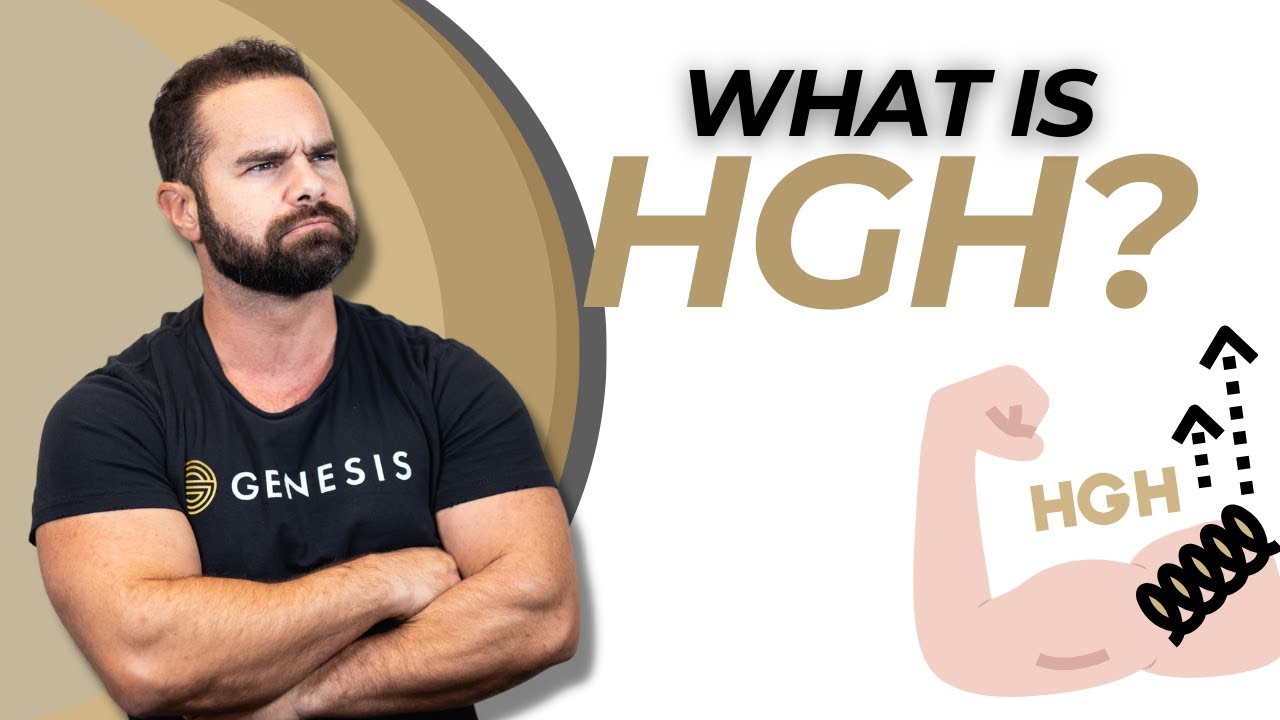
You’ve been feeling a little off lately. Your energy levels are low, it’s harder to build muscle, and your skin doesn’t have the youthful glow it once did. These symptoms may be the result of declining Human Growth Hormone (HGH) levels, a natural part of the aging process. As your body produces less HGH, you may notice various changes in your physical and mental health.
Fortunately, there are natural ways to stimulate HGH production and counteract some of the effects of aging. At Genesis Lifestyle Medicine, we are dedicated to helping you feel and look your best by exploring healthy, safe methods for optimizing your hormone levels. In this article, we cover several strategies to increase your HGH levels and improve your overall quality of life.
What is HGH?
Human Growth Hormone (HGH) is a hormone produced by the pituitary gland. It plays a vital role in growth, cell regeneration, and maintaining healthy tissue, including in the brain and various vital organs. As a key driver of muscle and bone development during childhood and adolescence, HGH helps regulate body composition, bone density, and metabolism.
In adulthood, HGH supports muscle strength, fat metabolism, and skin health. However, as you age, HGH levels naturally decline, often leading to symptoms such as decreased muscle mass, increased body fat, lower energy levels, and even a reduction in skin elasticity. Fortunately, there are natural ways to stimulate HGH production and maintain optimal levels as you age.

Optimize your sleep
One of the most effective ways to boost your HGH levels is by improving the quality of your sleep. HGH production peaks during deep sleep, particularly during slow-wave sleep. Therefore, getting enough deep, restorative sleep is crucial for maximizing HGH production. To improve sleep quality, you should create a sleep-friendly environment by keeping your room dark, quiet, and cool, establish a regular sleep schedule, and avoid stimulating activities, such as using electronic devices, right before bed.
Try intermittent fasting
Intermittent fasting is another powerful tool for stimulating HGH production. Fasting shifts your body into a state that encourages HGH release. Research has shown that periods of caloric restriction, especially with fasting, can significantly boost HGH levels. Intermittent fasting involves cycling between periods of eating and fasting. One popular method is the 16/8 approach, where you fast for 16 hours and eat during an 8-hour window. This can help you maintain healthy HGH levels and support fat loss, muscle growth, and overall health.

Include melatonin-rich foods
Melatonin is a hormone that regulates sleep and has been linked to increased HGH production. Consuming foods rich in melatonin can help improve your sleep quality and, in turn, your HGH levels. Natural sources of melatonin include tart cherries, almonds, and walnuts. If necessary, you can also consider melatonin supplements to support HGH production further. However, it's important to follow recommended dosages to avoid potential side effects.
Incorporate high-intensity interval training (HIIT)
Exercise is another factor in boosting HGH, with high-intensity interval training (HIIT) being particularly effective. HIIT involves short bursts of intense exercise followed by brief rest periods, which can increase HGH levels. Examples of HIIT exercises include sprints, burpees, and jumping jacks. These short but intense workouts not only stimulate HGH production but also promote fat loss and muscle growth.
Add GABA and amino acids to your diet
Gamma-aminobutyric acid (GABA) is an amino acid that supports deep sleep and boosts HGH levels. Natural sources of GABA include spinach, broccoli, and soybeans. In addition to GABA, other amino acids like arginine (found in turkey and pumpkin seeds), ornithine (found in dairy and lean meats), and glycine (found in fish and meat) can also boost HGH levels. These amino acids are also available in supplement form, but it’s important to consult with a healthcare provider to determine the appropriate dosage for your needs.

Manage stress and limit high-glycemic foods
Chronic stress and a diet high in sugary, high-glycemic foods can suppress HGH production. Stress increases cortisol levels, which negatively impacts HGH, while high-glycemic foods lead to insulin spikes that can inhibit HGH release. Managing stress through yoga, meditation, or spending time in nature can keep your cortisol levels in check and support HGH production. Additionally, reducing your intake of processed sugars and high-glycemic foods like pastries and white bread can help maintain healthy insulin levels, further supporting your HGH.
Consider hormone therapy
In cases where lifestyle changes aren’t enough to boost your HGH levels, hormone therapy may be an option. At Genesis Lifestyle Medicine, we offer bioidentical hormone replacement therapy (BHRT), which can be customized to meet your unique needs. Hormone therapy can restore your HGH levels to an optimal range, allowing you to enjoy the benefits of increased energy, muscle strength, and improved skin health. If you’re experiencing symptoms of low HGH, our expert team can develop a treatment plan that fits your goals.
Increasing your HGH levels naturally can improve energy, muscle mass, fat loss, and skin elasticity. At Genesis Lifestyle Medicine, we’re here to help you achieve optimal health and well-being by providing expert guidance on hormone optimization. Schedule a consultation with us to explore the best options for enhancing your HGH levels and revitalizing your life.




